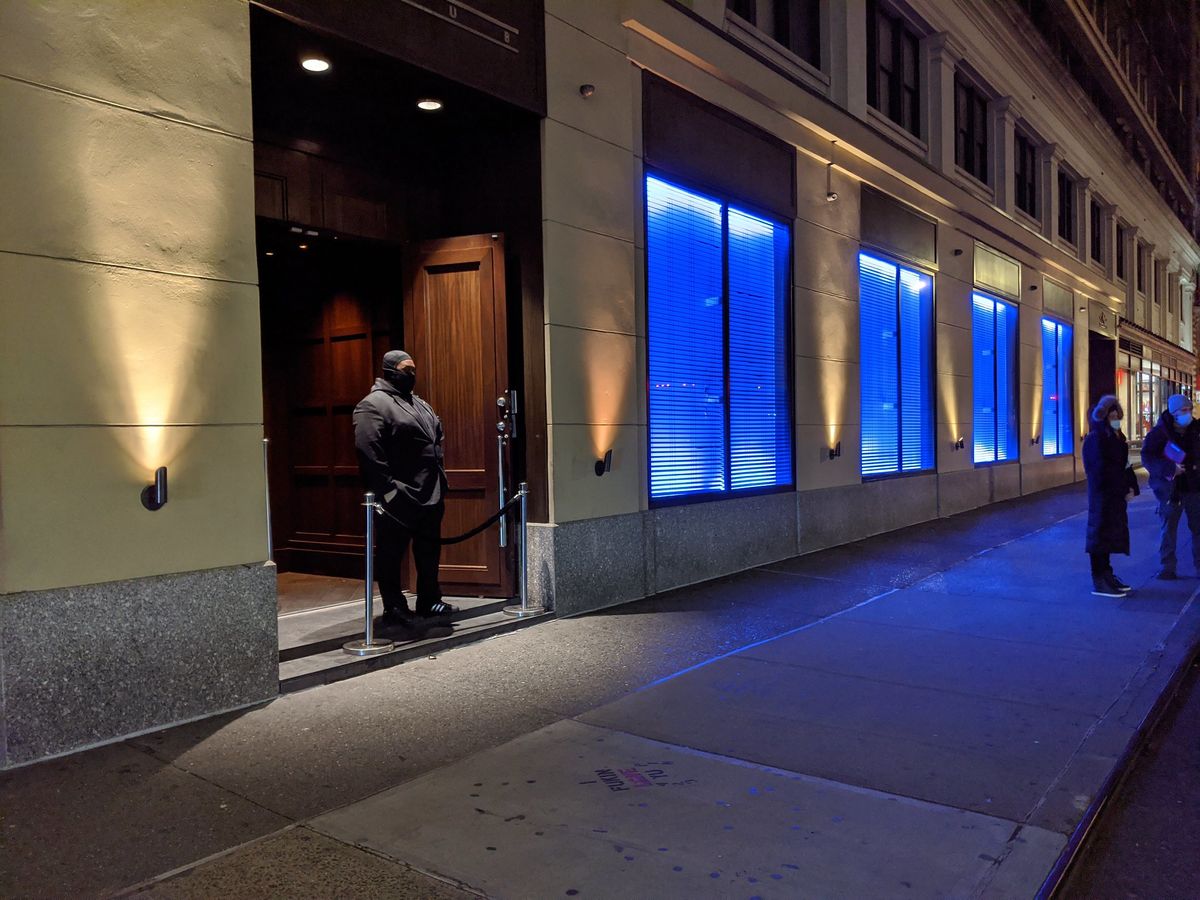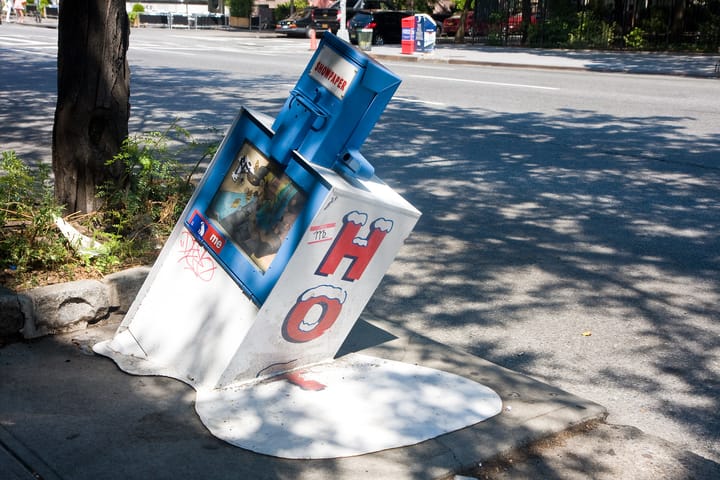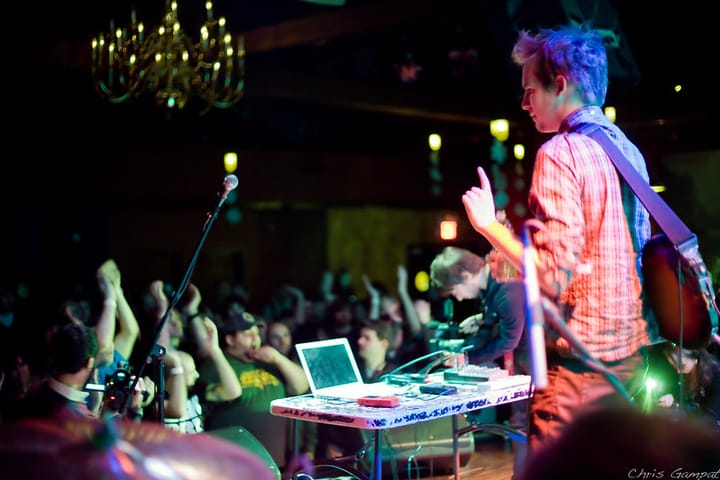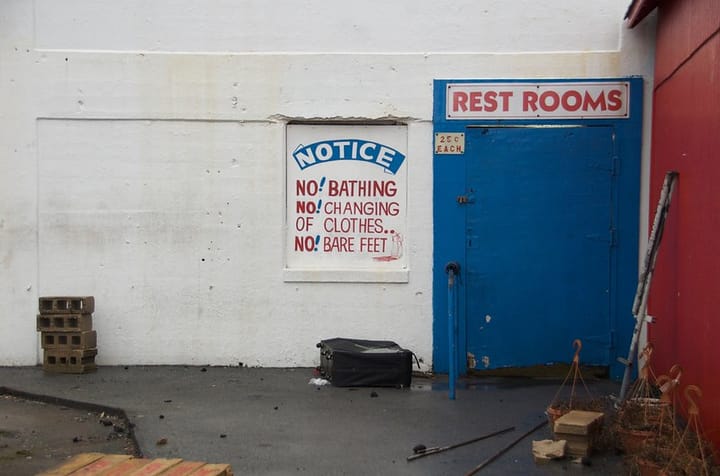Why the hell are New York City venues confiscating Narcan?
The city's Health Department now recommends every single New Yorker carry the overdose-reversal medication. Security at some of the city's biggest nightlife venues hasn't gotten the memo.

By Virginia K. Smith
With no clear end in sight to the opioid crisis, Naloxone (better known by its brand name, Narcan) has become a standard-issue first aid essential, a life-saving overdose reversal medication the Health Department has specifically asked all New Yorkers to carry. Apparently, though, some of the city’s bouncers think they know better.
I’ve written here before about my own experience having Narcan confiscated by security at Schimanski— an incident I will simply never shut up about as long as I live. More recently, multiple Twitter users (we’re not calling it X, grow up) cited similar problems with security throwing out their naloxone on their way into venues such as Brooklyn Steel and Basement, with one guard allegedly going so far as to say it implied the person in question was also carrying drugs.
(2/3) As I was entering the venue, a security guard found it on me and told me to THROW IT IN THE TRASH… when I explained to him what it was/that I was trained to administer it he aggressively responded “I know what it is and i don’t care, throw it away.”
— ryan (@OhItsRyan) October 27, 2023
This happened to me at Basement before — she kept saying it implies I had drugs on me… I was like babe, do you know how this stuff works? 🤦🏼♂️
— josh (@halooshk1) October 27, 2023
(A rep for the Knockdown Center, which runs Basement, told The Groove, “Knockdown Center allows Narcan into all of their events, at Basement or otherwise, no matter what, all the time.” Bowery Presents, which runs Brooklyn Steel along with many of the city’s largest venues, did not respond to multiple requests for comment.)
In a city where the Office of Nightlife 1) exists 2) has a very specific “Narcan behind every bar” campaign, how does shit like this keep happening?
“It is surprising because I think the city has made this huge push for it,” said Al Ostapeck, a harm reduction manager at Alliance for Positive Change, an organization with five multi-service community centers, including the Lower East Side Harm Reduction Center. In overdose prevention trainings with certain venues, “I have sometimes encountered security companies that were very resistant to naloxone, wouldn’t allow their workers to carry it, said it opens them up to extra liability and were not comfortable.”
(It’s important to note here that since 2011, New York has had a “Good Samaritan Law” protecting individuals from legal liability if they call 911 to report an overdose. It's also important to note that official recommendations to carry Narcan extend to all situations and demographics — the overdose crisis touches every corner of society, not just bars and clubs.)
- Our guide on where to find Narcan for free in the city
- An FAQ and video tutorial on how to use it
- The Health Department’s most recent naloxone advisory
Indeed, a big part of the problem here may well be jumpy independent security contractors who somehow think allowing Narcan at an event poses a larger liability issue than willfully increasing the likelihood of preventable overdose deaths.
A representative for Knight Security — the one event security firm that responded to The Groove for this story — said via email, when asked about their Narcan training policy: “We don't do that type of security … Narcan are more clubs, concerts and drugs raves.” (The firm specifically touts their experience with concert security on their website.)
The rep continued, “If you need Narcan we are not working it. If you need Narcan that means liability, drugs in the open.”
This approach to nightlife security is nothing if not a throwback, in the worst sense of the term.
“In the past, if someone was overdosing, it was very common to throw them on the curb and call 911,” said Heaven Ender, a harm reduction coordinator with the Brooklyn Harm Reduction Outreach Cooperative. “A lot of security guards are kind of prepped and primed to see illegal drug use and kind of just remove it from the space, and a lot of times people are hiring contracted security to come in for an evening to a venue they haven’t necessarily worked for, audiences they don’t know.”
Approaches to harm reduction vary dramatically from venue to venue, with some, like Nowadays, freely offering fentanyl test strips to patrons and hosting naloxone trainings for both staff and patrons. Conversely, Ender said, some venues make a habit of confiscating Narcan or questioning partygoers about it very intensely.
“Those tend to be larger scale venues like Brooklyn Mirage, Avant Gardner,” they said. “More DIY venues, Market Hotel and such, are generally better about it.”
Organizers say a high number of bars and venues have proactively sought out overdose prevention training — including for outside security teams — and that awareness is steadily improving. (“The number of times I’ve heard of people getting denied entry with Narcan is far lower than people expect,” Ender said.)
In fall of last year, Mayor Eric Adams signed legislation aimed at strengthening overdose prevention training and resources for the city's nightlife venues.
"The Department of Health and the Office of Nightlife are continuing to work closely with venues to encourage the access to naloxone in emergencies,” a Health Department representative told The Groove, noting that overdose deaths in 2022 broke previous records. “By providing venues with naloxone, educating staff on how to use it and working with venues to ensure this medication is never confiscated, we’re making critical efforts to save lives and prevent overdoses.”
The issue certainly isn’t unique to New York — search “Narcan confiscated” on social media and you’ll see similar stories from around the country, including but not limited to Phish shows — and is tied up in outdated social stigmas as much as it is the inner workings of random security firms.
Even in spaces where security is trained to recognize and allow naloxone, “I think the stigma around it and the looks security will give certain people for carrying it, sometimes I feel people are watched a little bit more because of it,” Ender said. “They’re being looked at as ‘that’s a sign of someone who’s potentially a drug user.’”




Comments ()